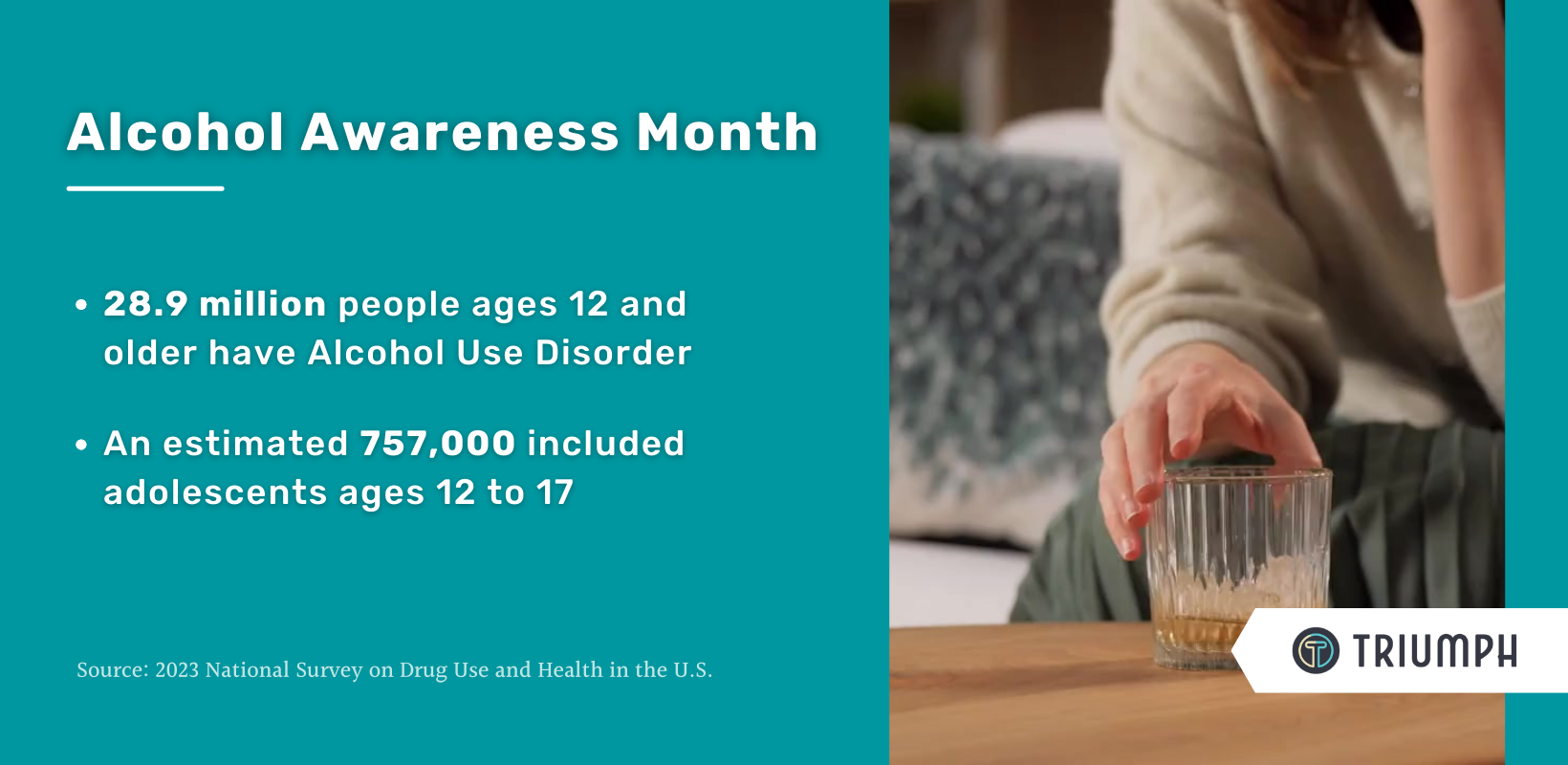
April is Alcohol Awareness Month
April marks Alcohol Awareness Month. This is a time when we can explore the topic of alcohol use and its impact. It’s important to remember that you’re not alone on this journey.
“Awareness is the first step towards prevention. Increasing awareness can save lives, break generational curses, and reduce stigma. It also helps to provide hope, support, and resources to those who need it.” Virginia Sanchez Jaime, Clinical Supervisor.
What is Alcohol Awareness Month?
Alcohol Awareness Month, created by the National Council on Alcoholism and Drug Dependence (NCADD) in 1987, aims to help people understand how alcohol can affect health and safety and reminds us that help is available.
Why Education Is Important
Learning about alcohol is important for making informed choices. Here are some things to know:
- Health Risks: When consuming alcohol becomes more than just social drinking, it can lead to more serious health problems like liver disease, heart issues, and some types of cancer. It can also affect the brain, pancreas, and a person’s mental health by causing feelings of anxiety and depression.
- Impact on Relationships: Alcohol can cause problems in relationships with family and friends. It can lead to fights, misunderstandings, and loss of trust.
- Community Issues: Alcohol misuse can also affect whole communities due to a higher chance of accidents and acts of aggression while under the influence.
Encouraging Healthy Choices
During Alcohol Awareness Month, it’s a great opportunity for communities to promote healthy activities and talk about responsible drinking. Here are some ways to get involved:
- Education: Organize workshops or talks that teach people about the dangers of excessive drinking and show them where to find help.
- Community Events: Plan fun activities that don’t involve alcohol, like sports games, art shows, or social events that focus on having a good time without alcohol.
- Support: If you know someone who is having a hard time with alcohol, encourage them to ask for help. Share information about support groups and hotlines that can assist them.
Personal Stories Matter
Sharing stories about people’s experiences with alcohol can make a big difference. Whether it’s someone’s recovery journey or how alcohol affected a family member, these stories can inspire and encourage others.
